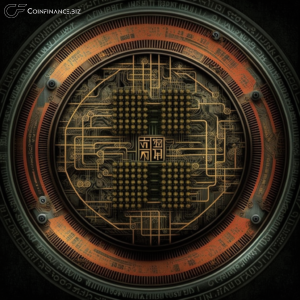The city of Changshu, situated in the Jiangsu Province of China, has recently announced that all its civil servants, including public service personnel, public institution personnel, and personnel of state-owned units, will be paid their full salaries in digital RMB or digital yuan starting from May 2023. This move is in line with China’s pilot program to establish an efficient and convenient digital RMB operation and management system by 2025.
Jointly issued by the Changshu Local Financial Supervision Bureau and the Changshu Municipal Bureau of Finance, the notice also states that employees of the local hospital will receive their salaries in digital yuan from next month. Moreover, these employees can opt for digital yuan settlements through self-service terminals, which are becoming increasingly common in China.
China’s push for the adoption of its central bank digital currency (CBDC) or digital yuan has been ongoing for several years now, and the country has been taking various steps to promote its use. During the Lunar New Year period in February 2023, several Chinese city governments gave away over 180 million yuan ($26.5 million) worth of the CBDC to encourage its adoption.
However, the government’s efforts have not been well-received by some residents of Hong Kong. Despite a 20% discount on purchases from 1,400 local vendors, subsidized for CBDC owners by the government, only 625 Hong Kong residents had signed up for the digital yuan hard wallet launch in the first four days. The lack of adoption in Hong Kong is attributed to concerns about the potential loss of privacy and autonomy, as well as uncertainty about the long-term stability of the digital yuan.
Nevertheless, China remains committed to its CBDC adoption plans, and Changshu’s decision to pay its civil servants in digital yuan is a clear indication of this. This move is expected to help boost the adoption of digital yuan within the country and accelerate the shift towards a cashless society.
Pilot Program for Digital RMB in Jiangsu Province
The province of Jiangsu, where Changshu is located, initiated the pilot program for digital RMB in Q1 2023. This program aims to establish an efficient and convenient digital RMB operation and management system by 2025.
The pilot program has been gradually expanding, and more cities are expected to participate in the future. The digital RMB is designed to function as a legal tender, just like paper money, and can be used for various purposes, such as payments, investments, and loans.

Benefits of Digital Yuan Payment
There are several benefits to paying civil servants and other employees in digital yuan. One of the main advantages is the convenience it offers. Digital yuan payment allows for instant, secure, and efficient transactions, eliminating the need for physical cash or bank transfers.
Furthermore, digital yuan payment can help reduce the risks associated with handling physical cash, such as theft or loss. It can also help combat corruption and money laundering, as digital transactions are more easily traceable than cash transactions.
Conclusion
China’s push for the adoption of its CBDC or digital yuan is gaining momentum, with more cities participating in the pilot program. Changshu’s decision to pay its civil servants in digital yuan is a significant step towards achieving this goal. Although the digital yuan adoption rate may vary across different regions and groups, the overall trend is towards a cashless society in China.




